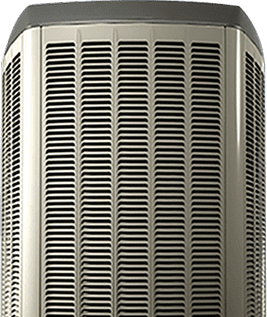Are heat pumps energy efficient

Are Heat Pumps Energy Efficient
Increasing numbers of homeowners are turning to heat pumps as an economical alternative to traditional heating and cooling systems as they become more conscious of how much energy they use and the effect that it has on the environment. But how do heat pumps compare in terms of energy efficiency compared to traditional heating and cooling systems? In this post, we’ll go over the basics of heat pumps, such as their benefits and whether they’re truly energy-efficient options for Ontario homeowners.
So, if you’re thinking about getting a heat pump for your home or are simply curious about its efficiency, keep reading!
Are heat pumps more “green”?
Yes, heat pumps are generally regarded as a more environmentally friendly alternative to traditional heating systems for cooling and heating your home. This is due to the fact that they do not rely on fossil fuels such as natural gas or oil to generate heat. They instead use electrical power to operate the compressor and move the refrigerant through the system to circulate heat from the outside air into your home. The method described above is much more energy-efficient than burning fossil fuels to generate heat, so heat pumps can help you decrease your greenhouse gas emissions and make a positive impact on the environment.
Furthermore, because electricity can be produced from renewable sources such as wind or solar energy, you can make your heat pump even more environmentally friendly down the line by selecting a green energy provider. Overall, a heat pump is an excellent choice for a heating and cooling solution that is both pleasant and sustainable.
Is my electricity bill going to increase because of my new heat pump?
It’s probable that the cost of your electricity will rise after you install a heat pump, but it’s also possible that it will fall or remain stable, depending on a variety of elements. One of the most important considerations is the efficiency rating of your heat pump. If you opt for a high-efficiency model and operate it correctly, you can be able to make up for the extra energy consumption with savings from lower costs for cooling and heating.
Another thing to think about is the dimensions and structure of your house. If you have a big house or one with a lot of air leaks, your heat pump could be working harder in order to keep your home cozy, which could boost your energy consumption and bill. However, if your home has been adequately insulated and sealed, your heat pump is going to be able to operate more efficiently, potentially lowering your monthly utility bills.
Ultimately, the best way to lower your electrical costs is to ensure that you work with a professional HVAC company to ensure you have the right unit installed in your home. They will also be able to provide you with recommendations on how to properly use your new heat pump in accordance with your heating and cooling preferences.
Are heat pumps actually beneficial for me?
The benefits of a heat pump depend on a variety of factors, including the environmental conditions in the region you live in, the dimension and arrangement of your house, as well as your needs for cooling and heating. And while it really depends on your personal preferences as a homeowner, it’s essential that you know what types of benefits heat pumps can provide you before you move ahead and have one installed in your home. Here’s a closer look at some of the benefits you could experience:
· Heat pumps tend to be far more energy-efficient than traditional heating systems, which can assist you in saving money on energy bills while simultaneously reducing your environmental impact.
· Many heat pumps can be utilized for both cooling and heating, making them an excellent all-in-one solution for your home’s temperature control requirements.
· Heat pumps generally have a longer service life than conventional heating systems, which can save you money over time by decreasing the need for frequent repairs or substitutes. Just keep in mind that, like all HVAC systems, you’re going to want to have it professionally serviced at least once a year to ensure that it remains in tip-top shape for as long as possible.
Is a heat pump electric or gas?
Heat pumps tend to be electric, which means that electricity is used to power the compressor and move refrigeration fluid throughout the appliance in order to regulate the temperature of your house. Nevertheless, hybrid heat pump systems that use electricity and natural gas are also available for purchase. These systems are programmed to alternate between electric and gas power based on the weather outside, along with other variables.
However, most heat pumps in Canada are all-electric, which can be advantageous for homeowners looking to transition away from burning fossil fuels while decreasing their environmental impact. Furthermore, because electricity is widely accessible and relatively inexpensive in most parts of the country, including Ontario, heat pumps that use electricity can be an extremely cost-effective choice for both heating and cooling your residence. Again, it’s also important to remember that when it comes to keeping your heat pump operating efficiently for your needs, you will need to book a maintenance appointment at least once a year. This is going to help you reduce the wear and tear on your units as well as identify any potential issues before they become more costly and damaging to your heat pump system. In return, you can rest assured your heat pump is operating efficiently for your needs while saving you money on your energy costs!
So, if you’re thinking about installing a heat pump in your home and live in the Hamilton, Ontario area or any of the surrounding neighbourhoods such as Kitchener, Cambridge, Brant, Stoney Creek, and more, the team at Boonstra Heating and Air Conditioning is ready and waiting to assist you!
Call and book a consultation appointment with us today!
